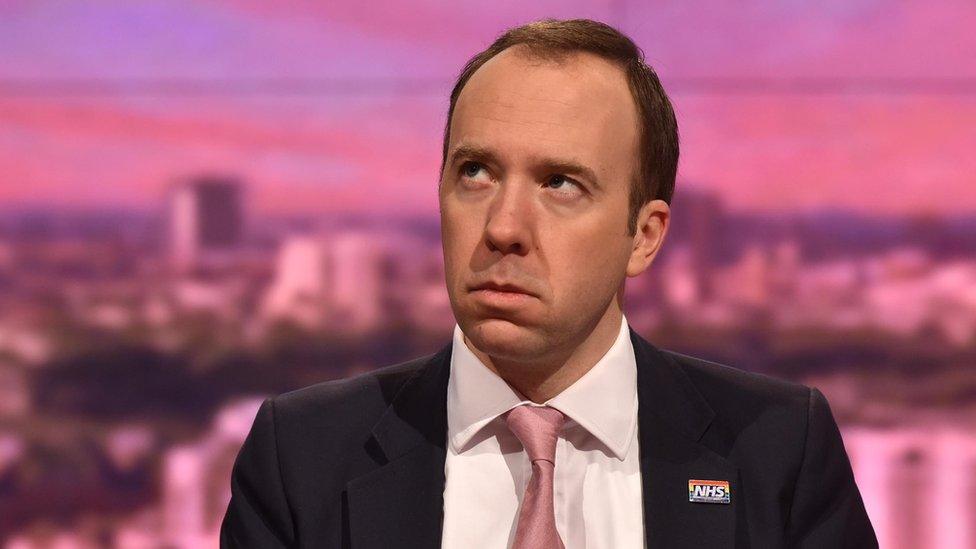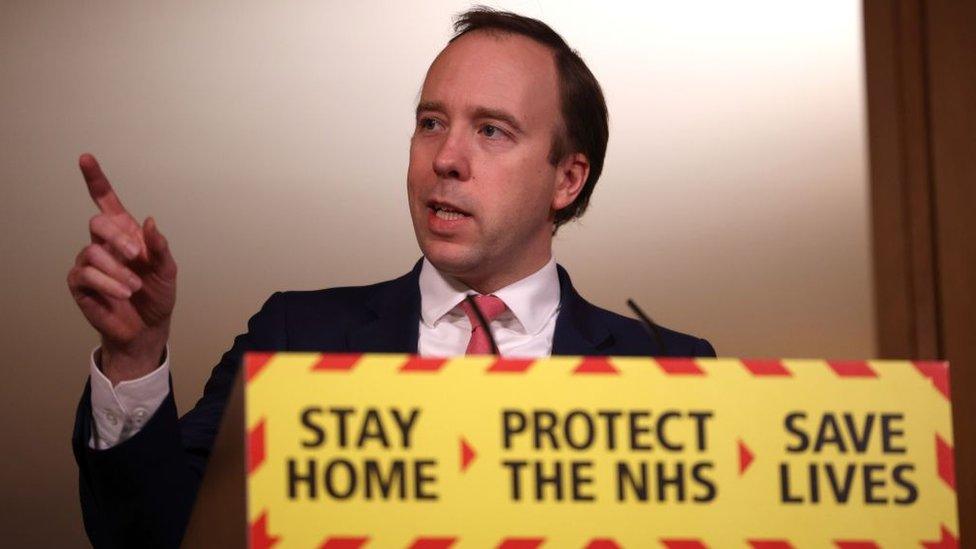Covid hearings begin in court of public opinion
- Published

The battle to learn lessons and defend reputations over Covid was always going to be intense, angry and passionate.
The focus for that, primarily, was expected to be the public inquiry, external, which is currently at its very early stages.
But no.
The simple political truth is the court of public opinion is opening and hearing evidence now, and will continue to in the coming days, via revelations in The Daily Telegraph.
And an argument now rages over fairness.
Is it fair that the journalist Isabel Oakeshott, who was given this huge tranche of WhatsApp exchanges by Matt Hancock to help him write a book about the pandemic, has now decided to reveal them, breaching his trust, and, Mr Hancock claims, a non-disclosure agreement?
Isabel Oakeshott doesn't deny signing such an agreement.
Or, is it fair that these messages - which I'm told had already been given to the public inquiry - should remain private potentially for years prior to the inquiry's report, or maybe forever?
Raw and unfiltered
The Telegraph's report provides a fascinating insight, partial though it clearly is, into how people under the professional pressure of their lives dealt with these colossal issues confronting them.
We see, in a raw, unfiltered way, the nature and tone of their interactions, the rapidly changing evidence and arguments about what was deliverable.
Isabel Oakeshott argues she is performing an important public service by publishing these exchanges now.
Matt Hancock says what she has done is outrageous, partial and driven by an anti-lockdown agenda from her and the newspaper.
I am told the Telegraph has been working on this for around two months.
It reminds me of the same paper's rolling revelations on MPs' expenses in 2009: a steady flow, day after day, of stories that dominated Westminster's agenda, forever moulding the reputation of many, many figures in politics.
Here - perhaps - we go again.
Related topics
- Published11 November 2022
